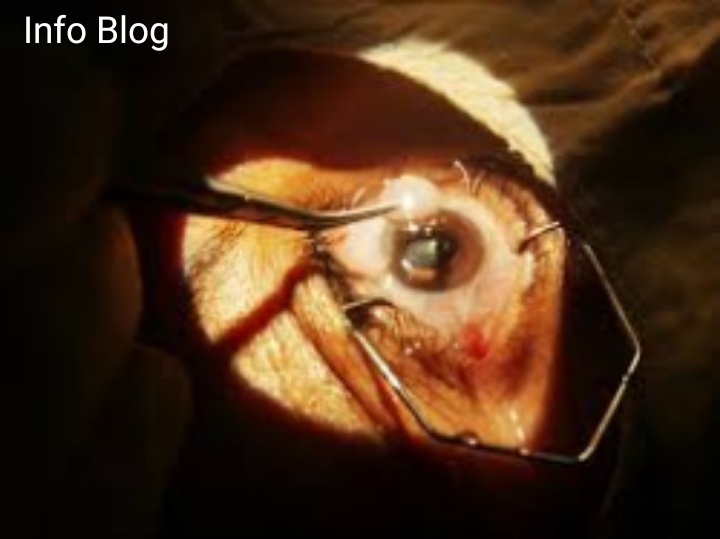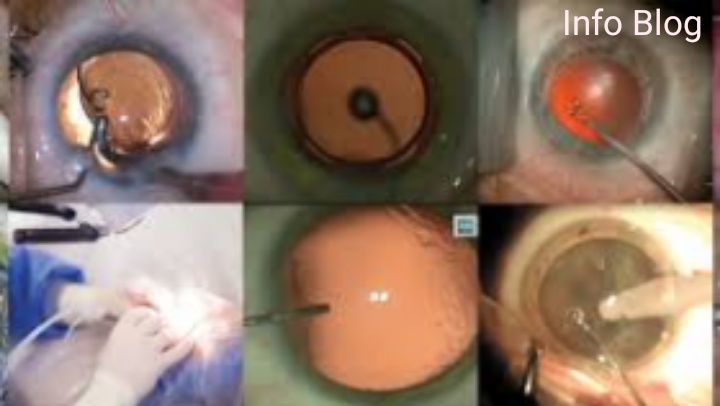Cataract surgery
 |
| Cataract surgery |
Cataract surgery is a procedure to remove the lens of your eye and, in most cases, replace it with an artificial lens. This procedure is typically done to remove the cataract, but it can also be used to restore some of your vision. Cataract surgery is routine for older people who are experiencing vision loss.
What is a cataract?
Cataracts are cloudy, opaque or opalescent areas in the lens of the eye. Cataracts are the most common cause of vision impairment in North America. A cataract develops when the aging process of the lens causes a buildup of protein and other materials. The lens becomes difficult to see through, and a cataract can be surgically removed by a doctor to restore clear sight.
What causes a cataract?
Cataracts are one of the leading causes of vision loss in the United States. They develop when the lens of your eye becomes cloudy. The lens is made of a protein called crystalline lens, which is normally clear. However, over time, it becomes cloudy and impairs your vision. Because the lens is made of protein, it can only be removed, not replaced. Cataract surgery is a surgical procedure to remove the cloudy lens and replace it with an artificial lens.
What are the symptoms of a cataract?
Symptoms of a cataract include blurry vision, light sensitivity, distorted vision and a change in color. If you are experiencing any of these symptoms, you should get a cataract surgery consultation with a specialist. If you are in the United States, you can find a specialist by visiting the websites for the American Academy of Ophthalmology or the American Society for Cataract and Refractive Surgery. There are a number of different types of cataract surgeries. Generally, there are two types: phacoemulsifcation and extracapsular surgery. Phacoemulsifcation is a procedure that uses ultrasound, laser or suction to remove the clouded lens and replace it with an artificial lens. Some surgeons may also replace the lens with an intraocular lens, which is a lens that is inserted into the eye tissue. An extracapsular surgery is a procedure that removes the clouded lens without replacing it.
What are the benefits of cataract surgery?
There are many benefits to cataract surgery. These benefits include restoring vision, improving quality of life, helping prevent blindness, and eliminating the need for glasses. With cataract surgery, you can also have your eye done when you are young and avoid the complications that come with cataract surgery later in life.
Can cataract surgery be reversed?
Eye cataract surgery can be reversed. The most common treatment is to replace the cloudy lens with an artificial lens. The artificial lens is a clear plastic lens that can be inserted after the clouded lens is removed. The artificial lens is then held in place by a series of small metal rings. The rings can be adjusted to correct the refractive error, restoring normal vision. However, if you have progressive cataract, the natural lens will continue to cloud and eventually, the eye will have to be removed.
How is a cataract surgery performed?
Cataracts are caused by the gradual build-up of protein deposits in the lens of the eye. The lens is made up of a transparent protein called crystallin which is a derivative of a protein called collagen. When the protein is exposed to high-energy radiation, it breaks down into a protein-free material called a proteinaceous body. The proteinaceous body forms a lens-like mass in the lens, which gradually blocks the passage of light. The lens-like mass is called a cataract. Cataract surgery is typically performed by a refractive or ophthalmic surgeon. The surgeon opens the eye and removes the cataract along with the lens. If the cataract is too large, the surgeon can remove part of the lens to make it smaller. The surgeon then places an artificial lens in the eye.
What should you do after a cataract surgery?
 |
| Cataract surgery |
After a cataract surgery, your vision should improve. However, there are other things you can do to help your recovery. For example, you should wear your glasses or contact lenses as soon as they are prescribed, but ensure they are comfortable. You should also make sure to rest your eyes after your surgery by doing whatever you are most comfortable doing. It is also important to stay hydrated and drink plenty of fluids.
What are the risks of cataract surgery?
There are some risks associated with cataract surgery. These risks can be reduced by discussing these risks with your doctor as early as possible. The risk of a cataract surgery is that it could cause your eyesight to worsen after the surgery. Most of these side effects are temporary, but they are still risks. This means that you should keep an eye on your vision and notify your doctor of any changes. It is also possible for your vision to persist for the rest of your life. This is a risk that can be mitigated if you have a surgery with a longer recovery time. If you are able to, you should consider having your eyesight checked every year before you undergo surgery.
What are the possible complications of cataract surgery?
One of the major risks associated with cataract surgery is that the artificial lens may not fit properly. This can be a significant cause of complications. Another potential complication is that the artificial lens may be dislodged or break during insertion or removal from the eye. This can cause inflammation to the eye and increased risk of infection. It can also cause the eye to close. These are all considered to be rare complications.
What are the side effects of cataract surgery?
here are many side effects associated with cataract surgery. General side effects included: mild to severe pain, bleeding, infection, temporary or permanent blurred vision, the need for a second operation, the need for a third operation, and changes to color perception. Common side effects include: light sensitivity, redness, swelling, inflammation, and pain. There may also be other side effects that vary depending on the type of cataract surgery that you undergo.
How long does it take to recover from a cataract surgery?
When it comes to cataract surgery, recovery is a key part of the process. It is important to care for yourself after surgery because it can take a few weeks for your vision to start returning. Some people may experience some temporary vision loss, so it is important to take it easy. You should stay away from any strenuous activity, since this can cause you to strain your eyes. It is also important to take time for yourself so that you can rest and focus on your recovery. Patients should avoid contact sports and other activities that could cause injury, and avoid driving for at least three weeks after surgery.
How much does cataract surgery cost?
The cost of cataract surgery is dependent on where you live. You might be able to find a cheaper clinic in your area, and the hospital you are visiting might have a program for people who are on a fixed income. You should always consult with your doctor about any costs associated with your procedure and what you can expect from your surgery.
What are the alternatives to cataract surgery?
Cataract surgery is an important procedure that removes the natural lens of your eye and replaces it with an artificial lens. Although cataract surgeries are the most common type of eye surgery, there are other procedures that can be used instead. If you are considering an alternative to cataract surgery, make sure to ask both your doctor and your healthcare provider about the alternatives. Some of the alternatives are laser surgery, laser capsulotomy, and phacoemulsification.
Conclusion:
We hope you enjoyed our blog about cataract surgery. Have you been experiencing your vision not being as clear as it once was? Are you worried about how you'll be able to function without your vision? If you've been experiencing any of these or related symptoms, you may be a candidate for cataract surgery. We hope to provide some helpful advice for those who are considering it.
Opthalmology related Articles:

